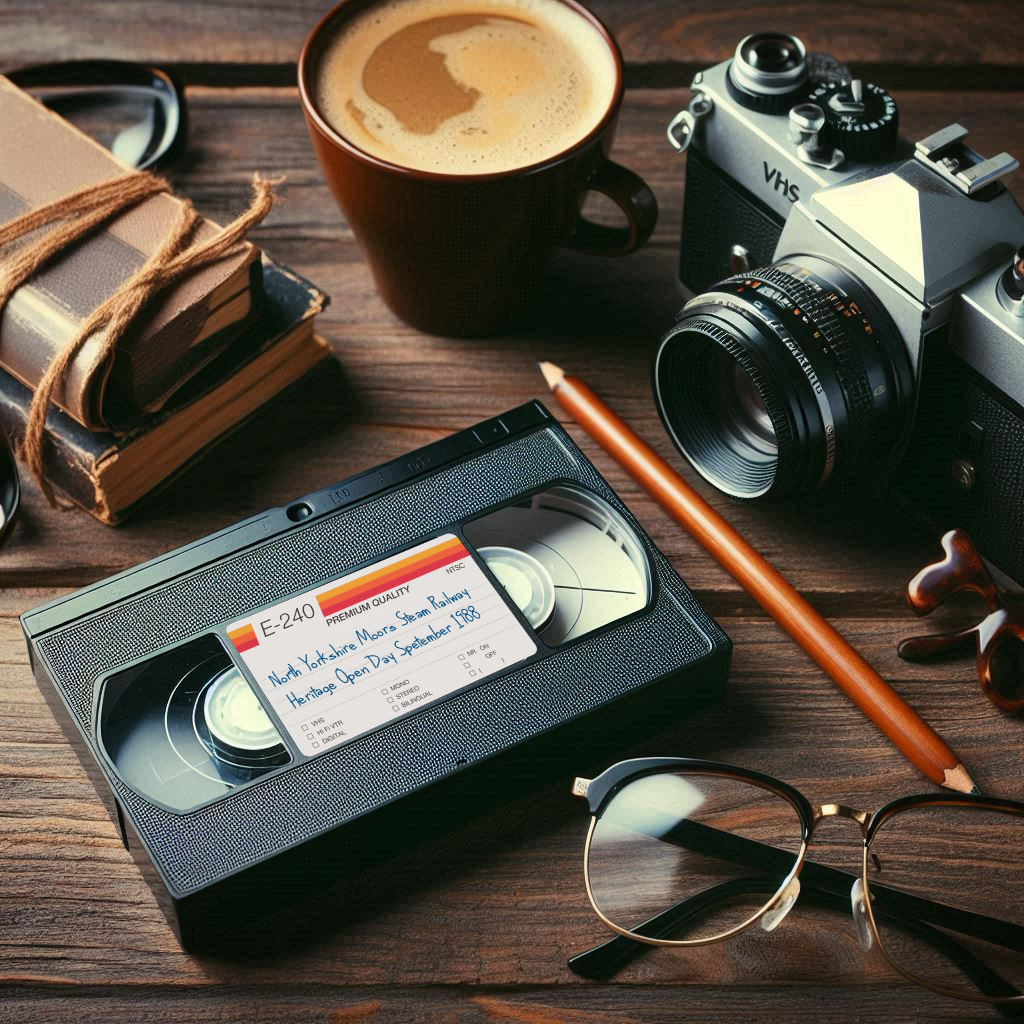
Video Recordings
Protect Your Home Videos Before They’re Lost Forever
Video tapes were never designed to last forever. Over time, the magnetic coating that holds the picture and sound begins to deteriorate, causing colours to fade, images to become unstable, and sound to distort. The longer they are left, the more likely they are to degrade beyond recovery.
Storage conditions also play a part. Tapes kept in damp or humid places can develop mould, making recovery of the video more difficult and sometimes causing permanent damage.
When we transfer your recordings, the final digital video reflects the condition of the original tape. Any existing wear or age-related damage remains visible, but digitising now preserves your footage in its current state and prevents further deterioration.
To achieve the best playback quality, we use professional equipment suited to each format.
For 8mm Video and Hi8 Video, we use the Sony EV S1000E, known for its precision tape transport, stable playback, and built in time base corrector.
For MiniDV, we use the JVC SR VS30, a dual deck unit that provides smooth, accurate digital playback and direct transfer to our Apple computer network.
For VHS and VHS C, we use the Panasonic NV FS200 and NV FS100, respected S VHS machines offering excellent picture stability and clarity.
Each analogue signal is passed through a Panasonic DMR ES10, which corrects timing errors and stabilises any picture wobble. This process removes the distortions often seen when ageing tapes are captured directly, resulting in a cleaner, steadier image.
The corrected signal is then sent via component output into a Blackmagic Intensity Shuttle, which digitises the video in high quality 4:2:2 colour space directly into DaVinci Resolve Studio, the same professional software used by film and television studios worldwide.
This workflow captures more colour detail and sharpness than consumer USB capture devices and ensures perfect audio and video sync. We also carry out monthly head cleans and maintenance on all our machines to keep them performing at peak quality.
Once transferred, your memories are safe in a digital format that can be copied, backed up, and shared without any further loss of quality.
-
Camcorder Tapes
Many families have precious memories stored on old video tapes. These can come in several formats: 8mm, Hi8, and Digital 8 tapes were used in small camcorders from the late 1980s through the 2000s, often holding family holidays, birthdays, and everyday moments. VHS-C tapes are a compact version of VHS that were popular in camcorders and can be played in a regular VHS player with an adapter. Mini DV tapes, introduced in the mid-1990s, recorded in digital quality on very small cassettes.
All of these tapes are now long out of use, and the equipment to play them is hard to find, but they often hold once-in-a-lifetime memories worth preserving.
8mm, Hi8, Digital 8, VHS-C, Mini DV
£16.00
-
VHS Video
VHS tapes were the most popular way to record and watch home videos from the late 1970s right through the early 2000s. Families often used them to capture birthdays, weddings, holidays, and everyday life with a camcorder, or to save favourite TV programmes. Today, VHS is an obsolete format, and video recorders are increasingly hard to find. Over time, the tapes themselves can lose quality or even stop playing, meaning many treasured memories risk being lost if they aren’t preserved.
VHS Cassette Tape 1- 3 Hours
£18.00
VHS Cassette Tape 3- 8 Hours
£28.00
-
Betamax
Betamax tapes were introduced in the mid-1970s as one of the first home video formats. Although smaller than VHS and known for their good picture quality, they lost out in the “format war” of the 1980s, meaning far fewer people used them compared to VHS. Families who did choose Betamax often recorded weddings, birthdays, and special TV programmes. Today, Betamax players are very rare and the tapes themselves can easily deteriorate, making it important to preserve any recordings before they are lost.
L-125, L-250, L-370, L-500, L-750: Standard Betamax tapes with recording times up to 180 minutes.
£18.00
Betamax
L-250, L-370, L-500, L-750: Standard Betamax tapes with recording times from over 180 minutes.
£28.00
-
Sharing Your Downloads
Every Video transfer includes a private online link to your video, available for 30 days. It’s easy to share with friends and family so everyone can enjoy the memories. For long-term storage, we also offer your videos on a Samsung USB drive for £18.00, securely kept in a custom film canister for safekeeping.
